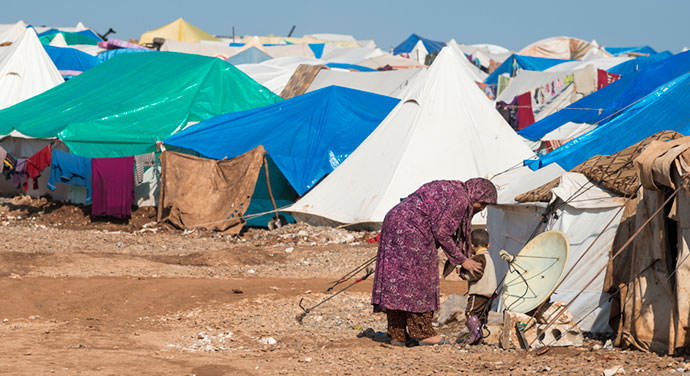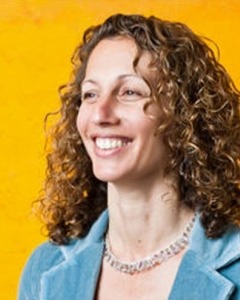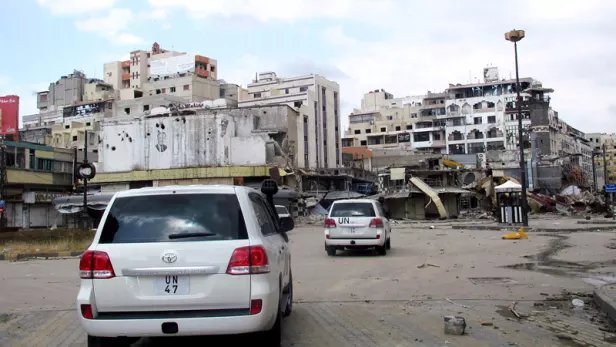Blog
Posted on January 4, 2017

Over the past five years, nearly half a million lives have been claimed by Syria’s civil war. More than 4.8 million people have been forced to seek refuge in neighboring countries and an estimated 6.5 million are internally displaced. The effects of the ongoing crisis have ravaged a nation and overwhelmed a region; millions of innocent civilians lack the most basic necessities and face grave risks, while host countries strain to meet the growing, desperate needs of millions of refugees.
Given the extreme refugee crisis and unprecedented devastation in Aleppo, we know many are seeking ways to help.
Continue reading at seattlefoundation.org.
Posted on October 21, 2016
By Meaghan Bogart

Rena Singer was the featured speaker at Global Washington’s October 12 Executive Director Roundtable.
“The ultimate goal of communication is to facilitate a change in behavior rather than merely to disseminate information.” Easier said than done. But after six years as Landesa’s Global Communications Director and a long journalistic career, Rena Singer started her own strategic communications consulting agency and now stresses that often. She mentioned it on October 12 while leading Global Washington’s latest Executive Director Roundtable.
Singer connects brain science, communication and culture. Knowing how to best grab an audience’s attention means understanding the science behind the inner workings of the brain. Singer cited The Narrative Project in her presentation. The Narrative Project interviewed over 1,000 people in the US, UK, France and Germany. They wanted to know if attitudes regarding global development were negative or positive, generally speaking. They asked questions like, “Do poor countries tend to stay poor?” and “Over the past 20 years has foreign aid made a difference?” Over 70% of respondents answered negatively. Singer went on to share tips on how to challenge and reverse this inherent cynicism, and promote optimism within the global development sector.
Continue Reading
Posted on October 17, 2016
By Jonathan Papoulidis, World Vision

A view of the convoy as Major General Robert Mood, head of the newly established U.N. Supervision Mission in Syria, leads a delegation to the Khalidiyyeh neighborhood of Homs to meet opposition members. Governments and donors must take a transformational resilience approach to Syria’s refugee crisis. Photo by: Nadine Kaddoura / United Nations
The Syrian crisis has shaken an entire region and been at the epicenter of a global displacement crisis for the past five years. This crisis has turned some 20 million children, families and communities into refugees and 40 million into internally displaced persons within their own countries, according to UNHCR.
The humanitarian community has been under massive strain to deal with this global crisis. The cracks of this strain are evident in a string of significantly under-resourced humanitarian appeals across fragile states, including Syria and the regional response.
Read more on Devex.


